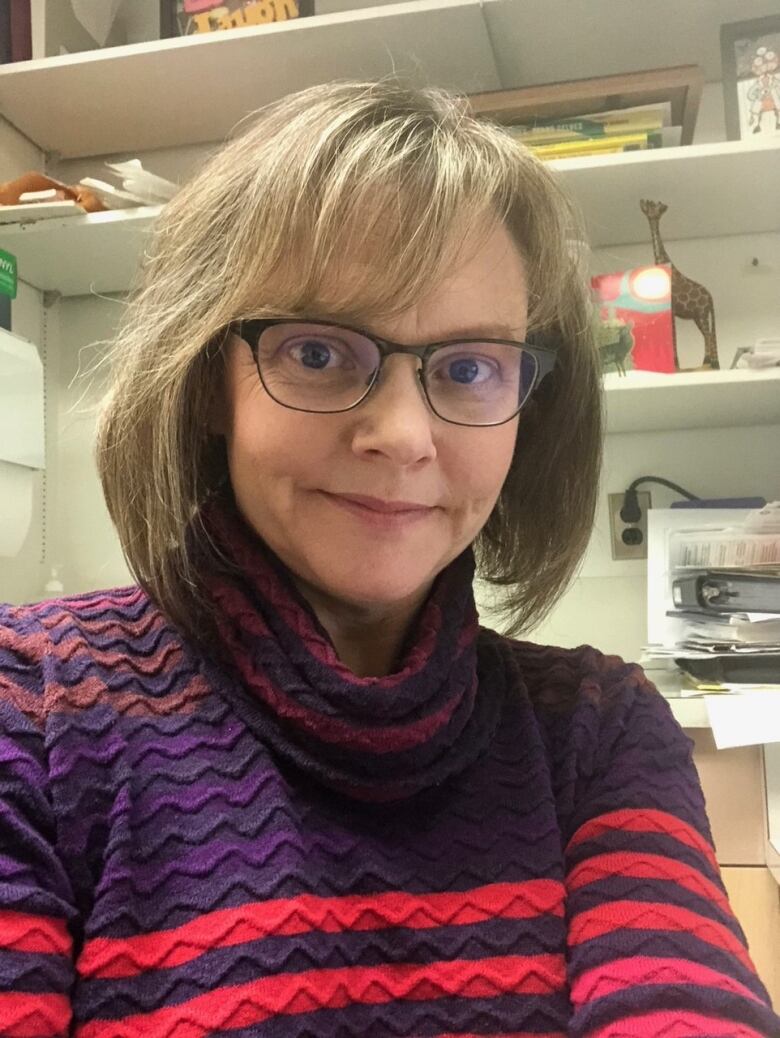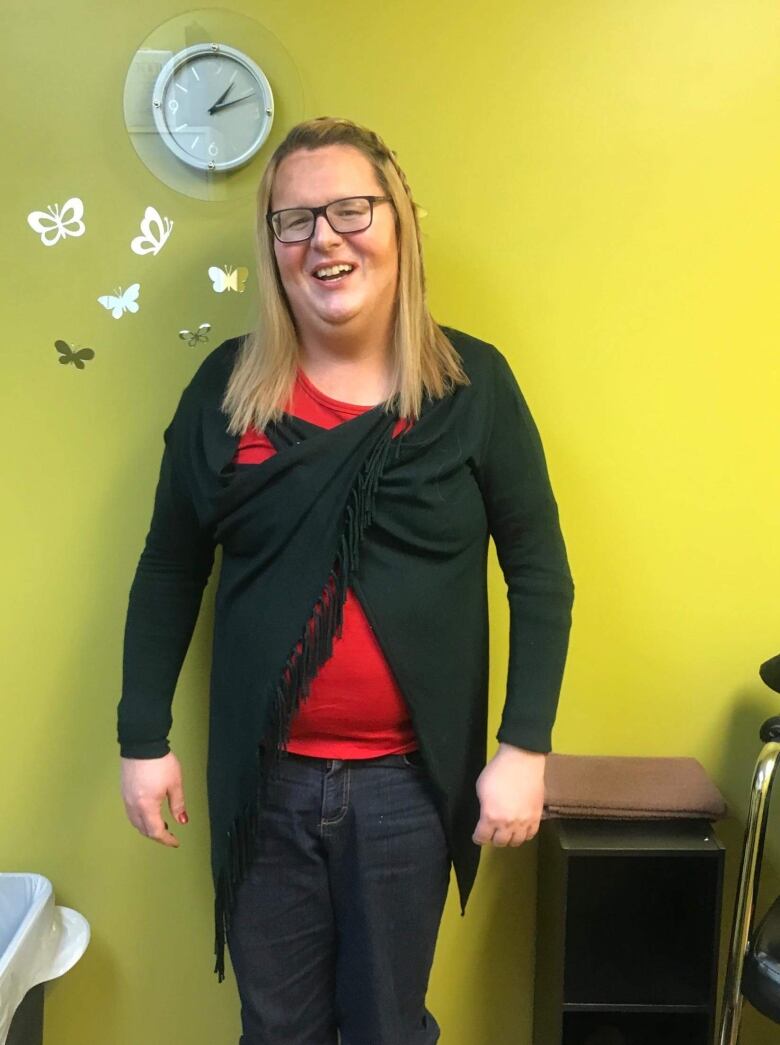Giving 'new life': Sask. doctors advocate for streamlining, improving transgender health care
One psychiatrist in province recognized to authorize gender-affirmation surgery, but says need is high

Reann Legge long struggled with her sense of identity, thinking she was gay.
But that didn't feel true for Legge, who was assigned male at birth. She went through puberty and through university stressed and conflicted, and it wasn't until 2013 that she came to terms with who she felt she really was.
"Something just clicked, and then I realized I was trans," the 30-year-old Saskatoon woman said.
But it was no easy realization, as her masculine traits make her feel not safe in her own body and face, andthat's something that can be psychologically damaging, as others in thetranscommunity have found.
"For many, it is not a question of 'if' they are going to commit suicide it is 'when,'" she noted.
Legge said she was fortunate enough to see Saskatchewan psychiatristSara Dungavell, to providea referralfor gender-affirmation surgery.
Psychiatrist overloaded
Since last fall, Dr. Sara Dungavell has been recognized by the province as someone who can provide the referrals; the province may then in turn cover up to 100 per cent of physician costs associated with some procedures.
However, Dungavell explained red tape can hold up the process, as she has a long wait list for herservice, and her assessments must be seconded by another psychiatrist.
"If someone's getting referred to me today, they're probably going to be waiting three years to see me," she noted.

Her Saskatoon-based clinic originally opened to address the "shockingly high suicide rate" in the transgender and LGBT community.
Not only is her caseload highin terms of supporting members of the trans community,she also juggles this role with travelling to provide mental health in Saskatchewan's north.
The current system, in her eyes, is not sustainable, particularly as she runs the risk of burning out.
"And if I burnout, that means northern Saskatchewan and all the LGBT community in the province doesn't have care," she said. "And if we continue to go this way and I miraculously don't burnout, it means slower and slower service for trans patients, because we get more and more of the wait list getting longer and longer."
While Saskatchewan requires two psychiatrists' referrals for surgery, provinces like Ontario and British Columbia do not require even one such referral, she noted.
She would rather see health care professionals, like doctors or nurses, trained to provide assessments, and has been in conversations with the Ministry of Health to move in this direction.
"We're really misusing a very limited resource that is psychiatry."
Facilitating transitions
Dr. Leane Bettin, who works at the Saskatoon Community Clinic, is also an advocate for improvinghealth care for people with gender dysphoria, and says there have been some "baby steps" in the right direction.
She would like to see a team approach for treatment, work to increase the experience of physicians, and the government stepping up to provide full coverage of treatments for gender dysphoria.
Treatments aren't always simply surgical, but can also include social, medical or hormonal treatment, or a combination, she noted, and more health care professionals are becoming versed in treatment.

"We have actually improved our ability to provide these services at home. We do have the expertise now; we just have to harness it."
Bettindescribes her work with transgender individuals as the only experience that rivals the wonders of delivering babies.
"When you are able to help someone become who they really are, it's like giving them new life," she said. "To see the joy in their faces and the way they can blossom into the person they were always meant to be, it's just amazing."

That transformation is the path Legge is on now. As she waits for gender-affirmation surgery in Montreal, she's looking into other feminization processes, such as facial surgery, liposuction and breast augmentation.
Her hope is to continue advocating for herself and the rights of transgender people for health care.
"In five years, I want to be able to look at all this struggle that I've gone through, and think I'm glad that I did that so that I can be the woman I am today."












_(720p).jpg)


 OFFICIAL HD MUSIC VIDEO.jpg)
.jpg)



























































































